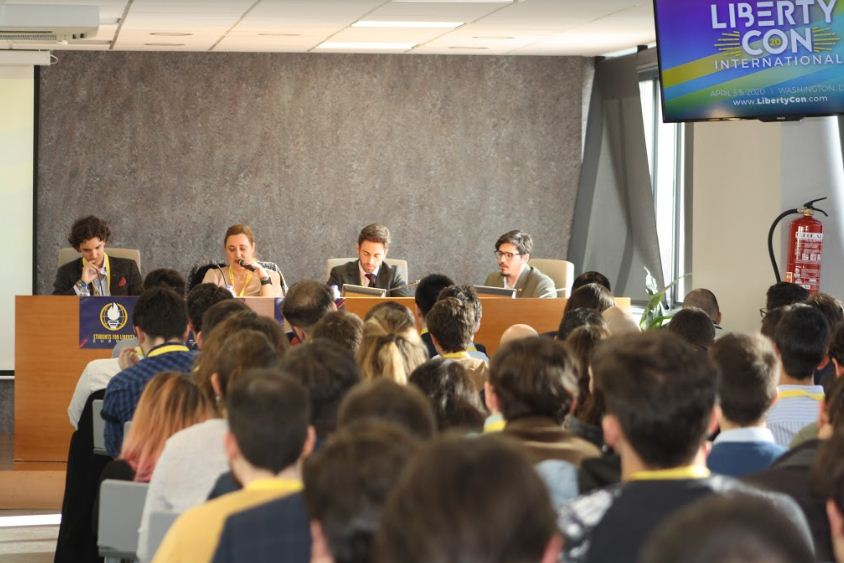
LibertyCon Europe
On March 6, 7 and 8, LibertyCon Europe took place in Madrid, an international conference to meet pro-freedom students and young professionals from around the world. Organised by Students for Liberty, it was the largest event of these characteristics at a European level and, in this edition, ended up in Spain with a record-high attendance. Thus, this year’s LibertyCon included talks and training workshops, inspiring speakers who shared their insights to advocate for freedom more strongly, debates on immigration, environmentalism, housing or the viability of today’s welfare states, all of which are crucial issues for the present and, above all, the future of European citizens.
Among the multiple interventions, the most notable was that of Juan A. Soto, director of Civismo, who, together with Francisco Coll and Álvaro Martín, researchers, spoke about whether Donald Trump is a hero or a villain for liberalism. Francisco Cabrillo, secretary of Civismo’s board of directors, spoke about whether we are going to a new model of autonomous financing. Last, but not least, Pedro Schwartz, vice president of Civismo, spoke about “Liberalism, a philosophy in danger”.
The first of them consisted of a roundtable held at the height of the first day of conferences, just before the intervention of the President of the Community of Madrid, Isabel Díaz Ayuso. During this session, Soto, Coll and Martín, moderated by the journalist from La Razón, Almudena Negro, discussed a truly controversial topic within the liberal sphere, but which presents a pressing need to be studied in depth, far beyond a mere conceptual analysis : «Trump and liberalism, hero or villain?».
«Trump does not fit into any of the lines of liberalism due to its character close to trade protectionism»
Francisco Coll
In a packed room, and after the presentation of the speakers by Negro, Soto went on to detail the main political and sociological demarcations of broad-spectrum liberalism, describing the many different trends that can be framed within such term. Then, Coll broke down some theoretical lines of economic liberalism regarding trade, noting that, for him, Trump does not fit into any of the proposed lines, «due to its mercantile nature and close to commercial protectionism.» Martín then commented on his tax and budgetary policy, previously describing what would be considered a liberal tax policy, according to the history of economic thought. In this sense, he stated that «Donald Trump’s is not at all liberal, due to the high increase in public spending, which has led to surprising levels of public deficit, contrary to the liberal principle of fiscal and budgetary stability.»
The speakers also clarified their position regarding Trump and his socio-economic policies, and, during the Q&A part, they addressed different topics such as liberalism in Spain, predictions for the American presidential elections, or the current confrontation between liberalism and identity populism.